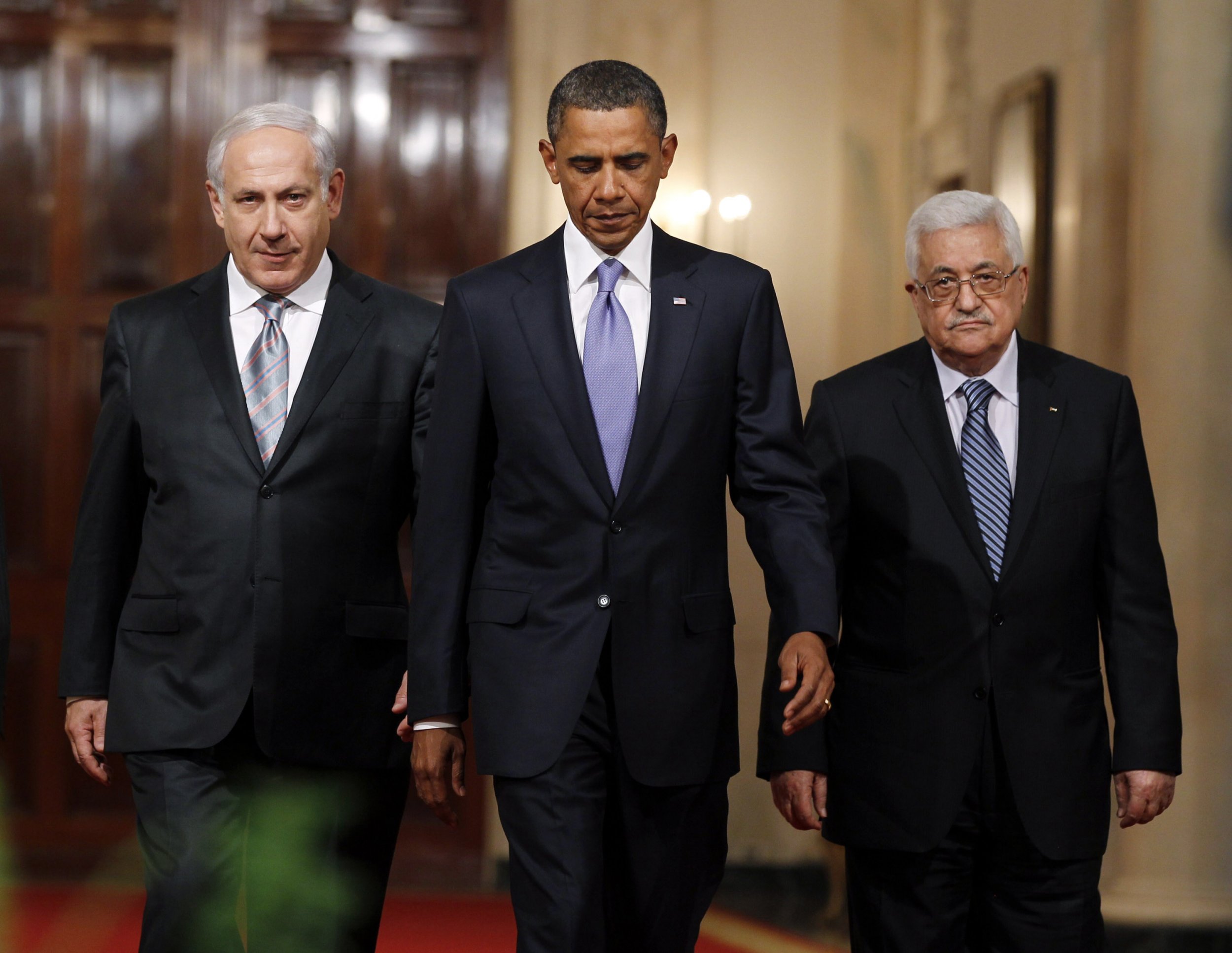
When the U.N. Security Council passed its resolution Friday denouncing Israel's presence in territories it captured in 1967, many ambassadors broke out in applause. The decision, they believed, would deter Israel from further settlement building, advance the peace process, and help achieve a two-state solution. The Middle East and the world would benefit. But, sadly, those expectations—and the ovation they sparked—were misplaced.
The resolution in fact poses untold dangers not only to Israel but to the Palestinians themselves, and greatly diminishes—rather than enhances—the chances for peace. It further harms the Middle East, a region that has seen far too much suffering, and should unnerve America's allies worldwide.
The hazards for Israel are clear. The resolution means the Western Wall and other places sacred to Jews for 3,000 years are considered as illegally occupied. It labels 600,000 Israelis as "flagrant violators of international law." As such, Israel could be sued in international criminal courts, boycotted, and sanctioned. The goal of the initiators of the resolution was not to achieve a better two-state solution, I believe, but to deny Israel the right to defend itself and, ultimately, the right to exist as sovereign Jewish state.
The resolution has already strengthened those in Israel who reject the two-state formula and call for formal annexation of much of the West Bank. The reasoning is such: "If the U.N. is already branding us criminals for merely settling these territories," they ask, "why shouldn't we go ahead and annex them?"
Ironically, though, and tragically, the resolution also hurts the Palestinians. For eight years now, Palestinian Authority President Mahmoud Abbas has refused Israeli Prime Minister Benjamin Netanyahu's offer to start direct talks immediately without preconditions. But if America and the U.N. are already ganging up on Israel, what incentive will the Palestinians have to negotiate?
Rather, they will continue to follow Abbas's plan to avoid talks while delegitimizing Israel in world forums. Israel will survive this legal onslaught much as it did the military offensives of the past and continue to thrive. The Palestinians, by contrast, will remain stateless.
The resolution will also harm the Middle East. A strong Israel is virtually all that stands between the Sunni Arab states and the radical jihadists in Iran and ISIS. The Security Council vote will undoubtedly reinforce those radicals and embolden them to mount further attacks not only against the Jewish State but also against its Arab neighbors. Meanwhile, the absence of peace negotiations between Israelis and Palestinians will further exacerbate regional instability. And the long-tormented peoples of the Middle East will receive an unequivocal message from the U.N.: the massacre of more than half a million Arabs in Syria, Iraq, and Yemen is unimportant. All that matters is Jews living and praying in their homeland.
Finally, the resolution impairs the American credibility so vital to the world. By violating the longstanding U.S. policy that rejected any alternative—especially from the U.N.—to direct negotiations between Israel and the Palestinians, the Obama administration has cast doubts on the reliability of American commitments. More disturbingly, by abstaining from voting on the resolution, in effect abandoning its only democratic Middle Eastern ally, the U.S. has called into question its dependability to its other friends. No American ally should rest easily.
The U.N., which never condemned the Arab states that occupied the West Bank and Gaza before 1967, never denounced the exclusion of Jews from their holiest sites in Jerusalem for 19 years before that, and overlooked Palestinian incitement to terror, has once again shown the vastness of its hypocrisy. That double standard is hardly new and cannot add to the international organization's discredit.
Yet the damage inflicted by this latest Security Council resolution may be unprecedented. Israel will once again have to defend itself, the Palestinians will refuse to talk, and peace will be ever more remote. The future of the Middle East will become more hopeless yet and America's vital friendships around the world will be weakened.
Now is the time to start repairing. Israelis must be told that they are not illegal occupiers of their ancestral home and protected from hostile international courts. The Palestinians must be dissuaded from trying to end-run the peace process and compelled to return unconditionally to the negotiating table. Middle Eastern peoples must be assured that the world cares about them, and freedom-loving nations must regain confidence in the defender of the free world.
All of this will require bold American leadership. In 1975, the same U.N. equated Zionism—the national liberation movement of the Jewish people—with racism. Sixteen years later, thanks to the efforts of President George H.W. Bush, that pernicious resolution was revoked. History teaches us that such injustices can be corrected and that, with courage, the worst of the U.N.'s outrages can be rectified.
Michael B. Oren, Israel's ambassador to the United States from 2009 to 2013, is currently a member of the Knesset and the deputy minister for diplomacy in the Israeli Prime Minister's Office.
Uncommon Knowledge
Newsweek is committed to challenging conventional wisdom and finding connections in the search for common ground.
Newsweek is committed to challenging conventional wisdom and finding connections in the search for common ground.
About the writer
To read how Newsweek uses AI as a newsroom tool, Click here.








